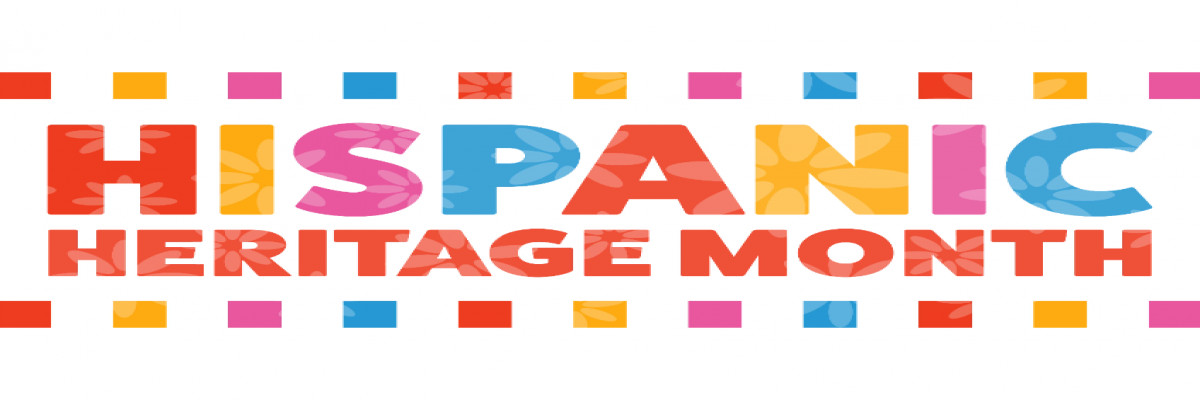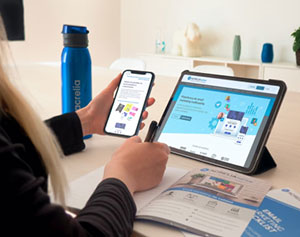Celebrating Diversity Every Day: Hispanic Heritage Month

Blog post By Paula Chiocchi on 2022-10-12
Every year the U.S. observes September 15 through October 15 as Hispanic Heritage Month, a time to celebrate the many contributions of Latinx Americans. More than 60 million people in the U.S. identify as Hispanic. With OMI headquartered in the Los Angeles area, where the Latinx community is central to our region's past, present, and future, this time has significant meaning to our team. Latinx employees have enriched OMI’s culture through the years and continue to do so.
Lifting up the Latinx community and other minorities -- not just this month but all year long -- is important for all of us. Here are a few reasons why:
We all play a role.
It starts at the top with executive leadership: organizations need standards in place to actively work towards more inclusive business practices. But it doesn’t stop there. We must all be intentional about removing unintentional biases and creating change to elevate the Hispanic community and all minorities.
A company’s Diversity, Equity, and Inclusion (DEI) program should be designed to build a diverse team, ensure equitable opportunities for growth, and nurture a company culture that supports belonging for all individuals. All three parts of the DEI initiative are essential.
Diversity drives business success.
There are many benefits to having a diverse team—and it can also impact your bottom line. Research shows that global companies with more diverse management teams have 19% higher revenues due to innovation. A broader range of personal backgrounds brings more ideas and fresh perspectives. Diverse groups have diverse understandings of your customer and how to solve your problems. I’m a firm believer that we learn more and achieve more when we work together, and diversity drives business success.
Equity means a fair opportunity.
Equality is not the same as equity. Equality gives everyone the same opportunity. But equity accounts for financial constraints, emotional trauma, physical limitations and other backgrounds that may impact an individual’s access to that opportunity.
This is important since not all groups are on the same playing field. For example, at the start of the pandemic, Latinx children had particularly low access to quality state-based preschool programs and as many as 31% of Latino households didn’t have access to broadband internet. Creating equity means accounting for these differences and providing opportunities to level the field.
Create an environment where people belong.
Recent Gartner research shows that organizations with “sustainable DEI initiatives demonstrate a 20% increase in inclusion, which corresponds to greater on-the-job effort and intent to stay, as well as high employee performance.” Inclusion is about creating “a sense of belonging — an employee’s perception of acceptance within a given group.”
One of the key steps for inclusion Gartner mentioned is the importance of eliminating “outsiderness.” The Gartner author writes that many employees still feel like outsiders, which may cause them to suppress the parts of themselves that are different from their colleagues. We can’t realize the benefits of a diverse group if individuals feel like they have to fit a mold of sameness. I always want my team to feel comfortable sharing new ideas and asking new questions, especially since their background and life experiences may lead them to ideas I would not have come up with on my own.
Consistency goes further than big gestures.
As with most things in life, building a DEI culture in your workplace is not about how you start, but how well you stay the course. We all have the ability, and responsibility, to uplift others by valuing their differences and seeking to learn from each other.
As we close out a month dedicated to recognizing achievement from the Latinx community, I encourage you to seek opportunities to value differences and promote opportunities for diverse groups.
Did you know? Over 75 million of OMI’s 80 million manager- and professional-level and above contacts are matched to the LiveRamp RampID graph, including 65 million records from our SMB and medical market databases. Contact us today to learn more about building a custom audience.
DOWNLOAD YOUR FREE ebook
At OMI, we believe good things happen when you share your knowledge. That's why we're proud to educate marketers at every level - in every size and type of organization - about the basics of email marketing and the contact data that powers it.
-
The Executive's 15-Minute Guide to Building a Successful Email Marketing Database
-
A 15-Minute Guide to Fortune 2,000 Businesses and Executives
-
Five Best Practices for Using Email Marketing to Target SMBs



